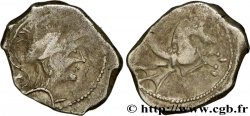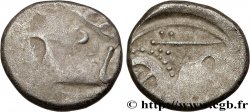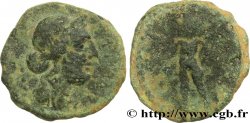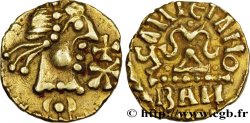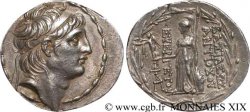bga_919804 - GALLIA - ALLOBROGES (Area of the Dauphiny) Denier à l’hippocampe, tête à gauche
160.00 €
Количество
Добавить в корзину

Тип Denier à l’hippocampe, tête à gauche
Дата: Ier siècle avant J.-C.
Металл: silver
Диаметр: 12,5 mm
Ориентация осей монеты: 11 h.
Вес: 2,35 g.
Комментарии о состоянии
Beau denier sur un flan épais et centré, de forme ovale. Droit presque SUP avec un très joli portrait. Patine grise
Ссылки в каталоге: :
Происхождение:
Monnaie de la vente i-Numis du 4 mai 2017, n° 2, présumée provenir du Trésor de Revel-Tourdan (1890) – ABT. n° 124
Лицевая сторона
Аверс: легенда: ANÉPIGRAPHE.
Аверс: описание: Tête casquée à gauche.
Обратная сторона
Реверс: легенда: ANÉPIGRAPHE.
Реверс: Описание: Hippocampe à gauche ; grènetis.
Комментарий
L'étude sur ce monnayage, dans les Cahiers Romans de Numismatique n° 6, montre que ces monnaies sont rarement bien centrées. Le revers fait penser à un rython (coupe à boire d’origine grecque).
The study on this coinage, in Cahiers Romans de Numismatique n° 6, shows that these coins are rarely well centered. The reverse is reminiscent of a rython (drinking cup of Greek origin)
The study on this coinage, in Cahiers Romans de Numismatique n° 6, shows that these coins are rarely well centered. The reverse is reminiscent of a rython (drinking cup of Greek origin)








 Cообщить об ошибке
Cообщить об ошибке Распечатать страницу
Распечатать страницу Отправить мой выбор
Отправить мой выбор Задать вопрос
Задать вопрос Consign / sell
Consign / sell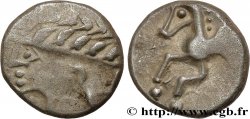
 Информация
Информация


